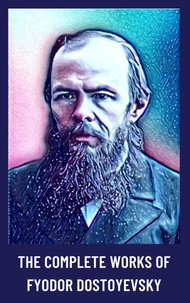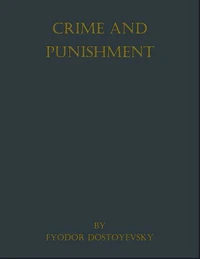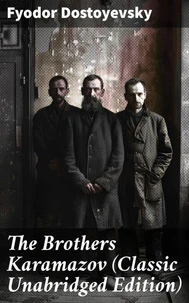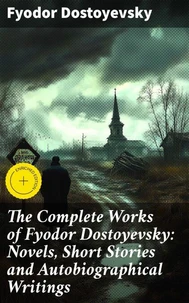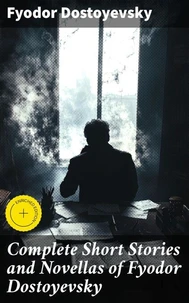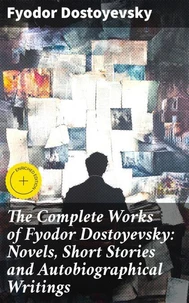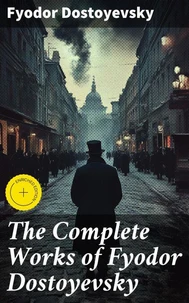Crime and Punishment. Bestsellers and famous Books
Par :Formats :
Disponible dans votre compte client Decitre ou Furet du Nord dès validation de votre commande. Le format ePub est :
- Compatible avec une lecture sur My Vivlio (smartphone, tablette, ordinateur)
- Compatible avec une lecture sur liseuses Vivlio
- Pour les liseuses autres que Vivlio, vous devez utiliser le logiciel Adobe Digital Edition. Non compatible avec la lecture sur les liseuses Kindle, Remarkable et Sony
 , qui est-ce ?
, qui est-ce ?Notre partenaire de plateforme de lecture numérique où vous retrouverez l'ensemble de vos ebooks gratuitement
Pour en savoir plus sur nos ebooks, consultez notre aide en ligne ici
- Nombre de pages648
- FormatePub
- ISBN978-3-7364-1748-9
- EAN9783736417489
- Date de parution27/10/2016
- Protection num.Digital Watermarking
- Taille733 Ko
- Infos supplémentairesepub
- ÉditeurAndhof
Résumé
Crime and Punishment focuses on the mental anguish and moral dilemmas of Rodion Raskolnikov, an impoverished ex-student in St. Petersburg who formulates and executes a plan to kill an unscrupulous pawnbroker for her cash. Raskolnikov, in attempts to defend his actions, argues that with the pawnbroker's money he can perform good deeds to counterbalance the crime, while ridding the world of a vermin.
He also commits the murder to test a theory of his that dictates some people are naturally capable of such actions, and even have the right to perform them. Several times throughout the novel, Raskolnikov compares himself with Napoleon Bonaparte and shares his belief that murder is permissible in pursuit of a higher purpose.
He also commits the murder to test a theory of his that dictates some people are naturally capable of such actions, and even have the right to perform them. Several times throughout the novel, Raskolnikov compares himself with Napoleon Bonaparte and shares his belief that murder is permissible in pursuit of a higher purpose.
Crime and Punishment focuses on the mental anguish and moral dilemmas of Rodion Raskolnikov, an impoverished ex-student in St. Petersburg who formulates and executes a plan to kill an unscrupulous pawnbroker for her cash. Raskolnikov, in attempts to defend his actions, argues that with the pawnbroker's money he can perform good deeds to counterbalance the crime, while ridding the world of a vermin.
He also commits the murder to test a theory of his that dictates some people are naturally capable of such actions, and even have the right to perform them. Several times throughout the novel, Raskolnikov compares himself with Napoleon Bonaparte and shares his belief that murder is permissible in pursuit of a higher purpose.
He also commits the murder to test a theory of his that dictates some people are naturally capable of such actions, and even have the right to perform them. Several times throughout the novel, Raskolnikov compares himself with Napoleon Bonaparte and shares his belief that murder is permissible in pursuit of a higher purpose.



